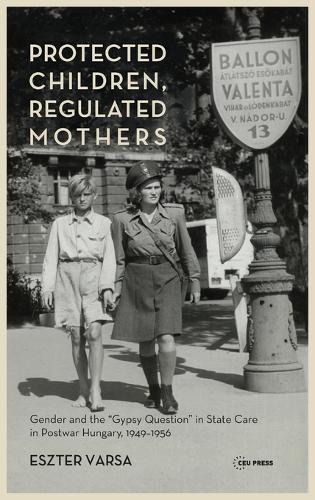Overview
"Protected Children, Regulated Mothers examines child protection in Stalinist Hungary as part of 20th century (East Central, Eastern, and Southeastern) European history. Across the communist bloc, the increase of residential homes was preferred to the prewar system of foster care. The study challenges the transformation of state care into a tool of totalitarian power. Rather than political repression, educators mostly faced an arsenal of problems related to social and economic transformations following the end of World War II. They continued rather than cut with earlier models of reform and reformatory education. The author's original research based on hundreds of children's case files and interviews with institution leaders, teachers, and people formerly in state care demonstrates that child protection was not only to influence the behavior of children but also to regulate especially lone mothers' entrance to paid work and their sexuality. Children's homes both reinforced and changed existing patterns of the gendered division of work. A major finding of the book is that child protection had a centuries-long common history with the ""solution to the Gypsy question"" rooted in efforts towards the erasure of the perceived work-shyness of ""Gypsies."""
Full Product Details
Author: Eszter Varsa
Publisher: Central European University Press
Imprint: Central European University Press
ISBN: 9789633863411
ISBN 10: 9633863414
Pages: 230
Publication Date: 10 November 2020
Audience:
General/trade
,
General
Format: Hardback
Publisher's Status: Active
Availability: In Print

This item will be ordered in for you from one of our suppliers. Upon receipt, we will promptly dispatch it out to you. For in store availability, please contact us.
Reviews
'Protected Children, Regulated Mothers' reveals the contradictory implications of social policy toward children in early state-socialist Hungary. By zeroing in on a seven-year period, historian Eszter Varsa shows how, in the name of protecting children, the state also regulated their mothers' work performance and sexuality. With special attention to the work-shy Roma population, racialized Hungarian policy anticipated what came to be called workfare in the United States. This is an important contribution to both the revisionist historiography of Stalinist societies as well as comparative welfare state studies.--Sonya Michel This deeply researched and well-documented book addresses issues of the state, child welfare, and Romani/non-Romani children in early socialist Hungary. Employing a variety of archival materials and interviews, Eszter Varsa makes important contributions to the fields of Romani history, modern Hungarian history, and the history of childhood.--Nancy M. Wingfield
Parts of the questions posed to the author of the book: The issue of childhood in the broader social and political contexts of Eastern, Southeastern, and East Central Europe continues to be an insufficiently researched topic, while childhood in state-socialist/Stalinist Europe is even more so. Which official childhood narrative do you try to counteract in Protected Children, Regulated Mothers? Were there any attributes specific to Hungarian state actors' attempts to exercise control over the Roma by placing their children in temporary state care? How was child protection supposed to balance the responsibilities for reproductive work but also impose paid employment for Romani mothers? https://lareviewofbooks.org/article/protected-children-regulated-mothers-a-conversation-with-eszter-varsa/ -- M. Buna * Los Angeles Review of Books *
Author Information
Eszter Varsa is fellow at the Institute for East and Southeast European Studies (IOS) at Regensburg, Germany




